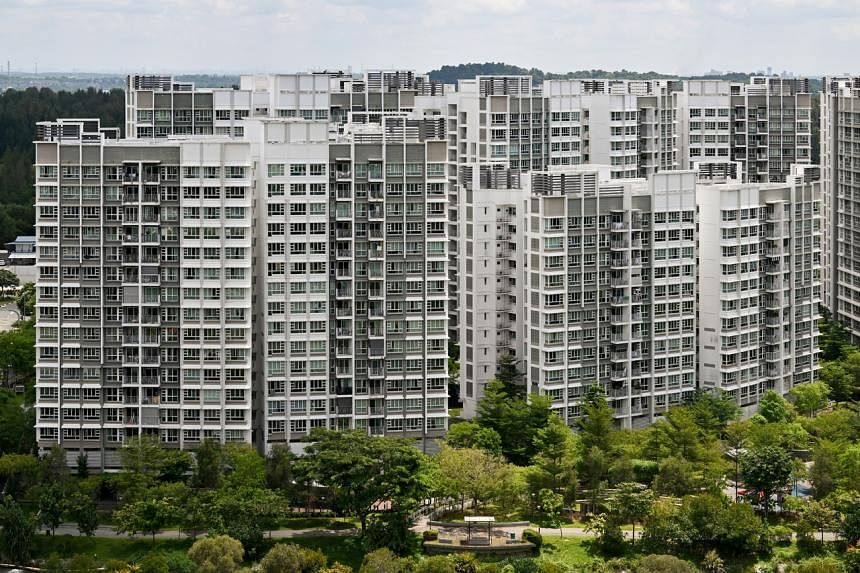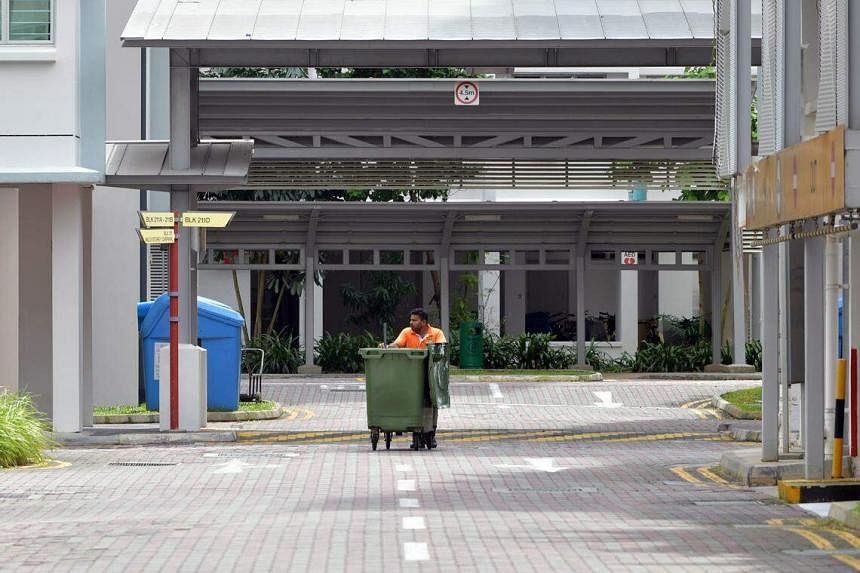Put HDB in charge of maintenance for housing estates instead of town councils: Murali Pillai

The HDB had taken on the role of estate manager before the Town Councils Act was passed in 1989. PHOTO: ST FILE

Ng Keng Gene
May 10, 20222
SINGAPORE - An MP has proposed that the Housing Board handle maintenance for public housing estates, to manage the rising costs of such services and address other challenges that town councils have faced in providing them.
In his adjournment motion on Monday (May 9), Mr Murali Pillai (Bukit Batok) made the case for the re-centralisation of estate maintenance resources under HDB.
He cited how new Build-To-Order (BTO) projects would have "significantly higher" maintenance costs compared with older blocks as they are high-rise and have extra "green" features. Town councils also will not enjoy any economies of scale for such costs, he added.
The HDB had taken on the role of estate manager before the Town Councils Act was passed in 1989 to give elected MPs autonomy to run towns by decentralising the management and maintenance of HDB estates.
In response, Senior Minister of State for National Development Sim Ann said: "We would think very carefully before re-centralising township maintenance... because devolution is at the heart of the town council concept."
She noted that it will not be feasible for the Government to fully fund cost increases, as inflationary pressures are affecting all sectors - not just estate maintenance.
In his speech, Mr Murali had highlighted a misalignment of incentives between the HDB and town councils, which could lead to increased maintenance costs.
HDB - as the developer - may not adequately consider maintenance costs in its building designs, he said, noting it has different motivations from a maintenance contractor.Newer high-rise BTO projects, for example, have pressure reducing valves installed to ensure the water supply is working well, he added. Some green areas require specialists to maintain them, instead of general landscaping contractors.
Having these BTO projects in mature estates also raises the issue of equity, said Mr Murali.
He said residents of older flats could potentially be helping to bear the higher maintenance costs of newer BTO flats. This is because town councils do not differentiate between residents of newer and older flats when collecting service and conservancy charges, which go towards funding such works.
On the lifespan of common properties in older estates, Mr Murali argued that service and conservancy charges should be used to maintain such infrastructure, but not to replace them when they have exceeded their lifespan.
He thus urged the Government to review the current system of estate management, and consider having HDB take charge of maintenance services.
If this is not feasible, the authorities could alternatively ensure service and conservancy charges are not used for renewal of infrastructure or to address design issues in BTO developments, he added.
In her response, Ms Sim said long-term cost increases will have to be borne by all parties.
Town councils play an important role in managing cost increases, she said, adding this is why they have full autonomy to set rates for service and conservancy charges.
On possible misaligned incentives of developers and maintenance contractors, Ms Sim said HDB considers sustainability and maintainability in its design of new BTO projects. The Government will review its processes to ensure that ease of maintenance is given priority, she added.
Addressing Mr Murali's call for the Government to fund replacements of infrastructure beyond its life cycle, Ms Sim said the Government is already co-funding such works.
Town councils are required to allocate at least 40 per cent of their income to funds which go towards cyclical works, she said, adding that a similar percentage of Government grants are channelled towards these funds.
The Government will pay attention to maintenance costs in designing HDB towns and track how the costs of running public housing estates should be managed, she said.

